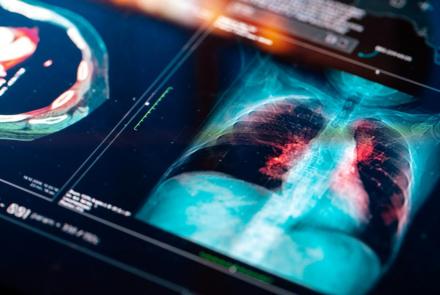If you have asthma, COPD or other lung disease, the heat and humidity of summer can take a toll on your breathing. It’s important to pay attention to the weather and air quality, and limit your time outside if needed during the summer months, says Liam Gross, DO, a pulmonologist with Pulmonary Medical Associates/Highland Medical.
Hot weather can constrict and narrow the airways. This makes breathing difficult for people with asthma. Heat also increases the risk of air pollution. In addition, stagnant air in the summer can trap pollen, dust, mold and pollutants, all potential triggers of asthma.
Pay Attention to Air Quality, Too
“As we saw from the recent Canadian wildfires, air quality can be a big factor in worsening breathing for everyone, but especially people with lung disease,” Dr. Gross said. In the morning, check your weather app to see what the heat, humidity and air quality will be. You can also look up your zip code’s air quality at https://www.airnow.gov/aqi/.
If the air quality in your area is in the green zone it means the air quality poses little or no risk. The yellow zone means there may be a risk for some people, particularly those who are unusually sensitive to air pollution. The orange zone means the air is unhealthy for sensitive groups, including those with lung disease. The red zone means the air is unhealthy and people with lung disease may experience more serious health effects. The purple zone is very unhealthy air for everyone, and the maroon zone is a health emergency for everyone.
Exercise Safely
When it’s hot and humid, or on poor air quality days, stay inside as much as you can.
Keep the windows closed, Dr. Gross advises. If you need to go outside on a day with poor air quality, wearing a tight-fitting KN95 mask can help protect you.
- If you want to exercise outside, do it in the early morning or evening, when the air quality can be better and the heat and humidity is lower.
- If you exercise outside, make sure you have your rescue inhaler with you to keep your airways clear and your symptoms under control.
- Drink plenty of water so you don’t get dehydrated when you’re exercising outside.
- Take it slow, and take breaks in warm weather.
- Take your phone with you if you’re out exercising alone, so you can call for help if needed.
- Consider exercising in the gym or at home on hot days.
For Parents of Kids With Asthma
If your child with asthma is in camp or another organized activity this summer, talk with the program’s supervisor. Make sure they know about your child’s asthma and have a copy of their asthma action plan. Your child and their supervisor, counselor or coach should be able to recognize their asthma symptoms and know when your child should stop and use their rescue inhaler.
Anyone with lung disease should talk with their doctor if they have trouble breathing in the heat, Dr. Gross says. “Your doctor will work with you to adjust your medications and make other changes to ease your breathing,” he said.






